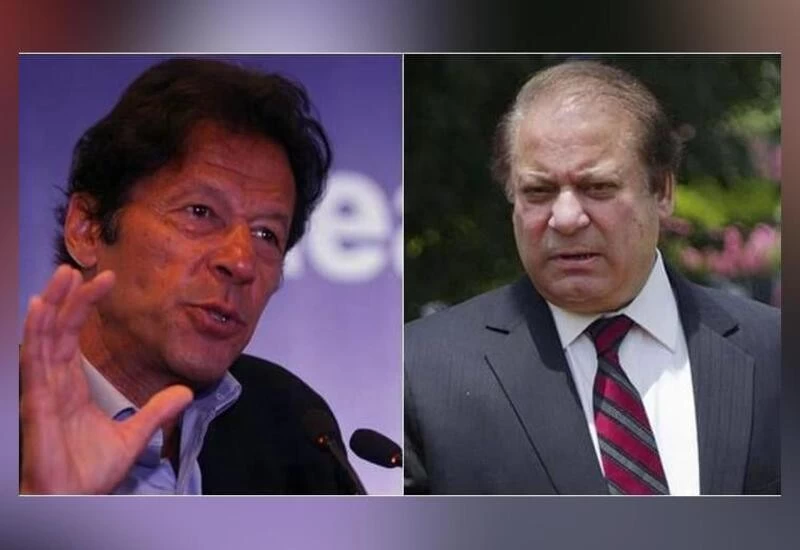Islamabad: Pakistani Prime Minister Imran Khan has said that allowing former premier Nawaz Sharif to leave the country for medical treatment in the UK was a "mistake" and his government "regretted" the decision.
Sharif, 70, was allowed to leave for London in November last year after the Lahore High Court granted him four-week permission to go abroad for treatment.
The three-time premier had submitted an undertaking to the court to return to Pakistan, citing his record of facing the law and justice, within four weeks or as soon as he is declared healthy and fit to travel by the doctors.
In an interview with ARY News on Thursday, Khan said it was a "mistake" on his part to allow Sharif to leave Pakistan. He said his government "regretted" the decision to lift a ban on Sharif.
"Now we feel embarrassed. Now he (Nawaz) has started doing politics [from] there as well and, when you see him, it seems like there is nothing (wrong) with him," Khan said.
In May, a fresh picture of Sharif having tea at a London cafe along with his family went viral on social media, sparking a debate on his health with the ruling Pakistan Tehreek-i-Insaf members demanding his return to face corruption cases.
In the picture, he was seen sitting at a roadside cafe with his granddaughters. He sported a blue shalwar kameez and a cap and apparently looked in better health.
The government came under criticism when last week Sharif's photos surfaced, showing him strolling in a street, prompting calls from within the ruling party to bring him back.
Khan said that Sharif was diagnosed with an immune system disorder and his illness was discussed in the Cabinet and a decision was made to let him go for treatment.
He said the court had also observed that the government would be responsible if something happened to Sharif.
Khan also recalled that Sharif's younger brother Shehbaz had submitted indemnity bonds worth Rs seven billion, promising that the former prime minister would come back.
"We tried our best to do what we could, but the medical opinion presented to us was that if we didn't do anything, he [Nawaz] could die, that he might not even reach London. This is what we were told and after that, we would have been held responsible. So after that, we sent him in good faith," Khan said.
Asked if he will order a probe into if he was presented "fake" reports about Sharif’s health, Khan said he was in contact with the Punjab health minister Yasmin Rashid who was responsible for conveying reports about Sharif's health.
Sharif was given bail in the Al-Azizia Mills corruption case, in which he was serving a seven-year prison sentence in Kot Lakhpat Jail. He was also given bail in a money-laundering case to facilitate his travel abroad.
Sharif was diagnosed with "complicated coronary artery/ischemic heart disease with significant disease burden".
The prime minister admitted that an Arab royal had asked the government to let Sharif leave, but refused to take a name citing "international relations".
"They (Sharifs) do have connections abroad. But they (the royal) did not assert it, they said it in a very polite manner. It wasn't like 'if you don't do this, this will happen'," he said.
To a question about the rejection of the Senate, which is dominated by the Opposition, of two Financial Action Task Force (FATF) related bills, he said that if Pakistan was placed on the blacklist, the country would suffer the challenges faced by Iran.
"People talk about inflation now. If we are placed on the blacklist, we will experience inflation that would ruin our economy," he said.
The Paris-based global money laundering and terrorist financing watchdog FATF put Pakistan on the grey list in June 2018 and asked Islamabad to implement a plan of action by the end of 2019, but the deadline was extended later due to Covid-19 pandemic.
If Pakistan fails to comply with the FATF directive by October, there is every possibility that the global body may put the country in the 'Black List' along with North Korea and Iran.


